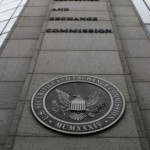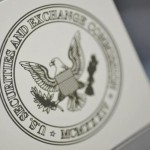Judge Rakoff Says 2011 S.E.C. Deal With Citigroup Can Close

The settlement that just wouldn’t settle — Citigroup’s 2011 deal with the Securities and Exchange Commission — has finally cleared its last hurdle.
Judge Jed S. Rakoff of Federal District Court in Manhattan, who initially rejected the $285 million settlement as “pocket change to any entity as large as Citigroup,” announced on Tuesday that he would approve the deal — reluctantly.
The decision comes on the heels of an appeals court ruling that undercut Judge Rakoff’s concerns that Citigroup had secured a sweetheart deal. In June, a three-judge panel of the United States Court of Appeals for the Second Circuit overturned Judge Rakoff, concluding that he “abused” his discretion “by applying an incorrect legal standard” to the case. The appeals court sent the case back to Judge Rakoff.
But even as he approved the deal, Judge Rakoff still managed to land a few jabs in his opinion.
“It would be a dereliction of duty for this court to seek to evade the dictates of the court of appeals,” Judge Rakoff wrote. The judge, known for his quick wit and distaste for financial fraud, added that the appeals court “has now fixed the menu, leaving this court with nothing but sour grapes.”
Judge Rakoff’s decision closes the book on a nearly three-year fight over the case, providing some long-sought validation to both the S.E.C. and the bank. Hoping to fend off other judicial second-guessing, the S.E.C. took the awkward step of teaming up with Citigroup against Judge Rakoff, just months after accusing the bank of defrauding investors in a flawed mortgage investment.
Judge Rakoff’s unusual concern — that most judges rubber-stamp S.E.C. settlements — stemmed from the size of the fine as well as the S.E.C.’s decision to settle the case without demanding that Citigroup admit wrongdoing. The rebuke, reminiscent of Judge Rakoff’s rejection of a Bank of America settlement that he called “half-baked justice at best,” raised larger questions about whether the S.E.C. was letting Wall Street off with little more than a slap on the wrist.
Judge Rakoff, a former federal prosecutor and defense lawyer, has positioned himself as a thorn in the side of Wall Street and its federal overseers. He recently wrote an article in The New York Review of Books that asked “why have no high-level executives been prosecuted” for bringing on the financial crisis?
In recent months, his concerns appeared to spread, inspiring other judges to raise questions about S.E.C. settlements. And in the aftermath of his rulings, the S.E.C. itself reversed a longstanding yet unofficial policy of allowing companies to neither “admit nor deny wrongdoing” when reaching settlements.
The shift alarmed Wall Street and the white-collar bar. At oral arguments before the appeals court in the Citigroup case, Brad S. Karp, a lawyer for the bank and chairman of the firm Paul Weiss, warned that admissions could open the floodgates to shareholder lawsuits.
“The federal regulatory enforcement regime would screech to a grinding halt,” Mr. Karp remarked.
The federal appeals court raised similar concerns that Judge Rakoff had overstepped his reach. The three-judge panel, ruling that it “is not within the district court’s purview to demand ‘cold, hard, solid facts,’ ” outlined a checklist for judges to follow when weighing enforcement cases.
“Trials are primarily about the truth,” the appellate panel wrote in its opinion. “Consent decrees are primarily about pragmatism.”
In a three-page opinion, Judge Rakoff warned about the implications of the appellate court’s ruling.
“This court fears that, as a result of the court of appeals’ decision, the settlements reached by governmental regulatory bodies and enforced by the judiciary’s contempt powers will in practice be subject to no meaningful oversight whatsoever,” he wrote.
But he added that “they who must be obeyed have spoken, and this court’s duty is to faithfully fulfill their mandate.”
Source: nyt





























